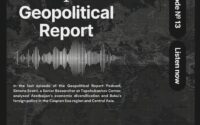Tajikistan: Country Risk Profile for Investors
Tajikistan presents a moderate risk profile for investors because of its political stability under authoritarian rule, weak economic development, and significant security challenges. Although the country has substantial natural resources and strategic ties with Russia and China, pervasive corruption, poor infrastructure, and proximity to conflict zones undermine its investment attractiveness.















